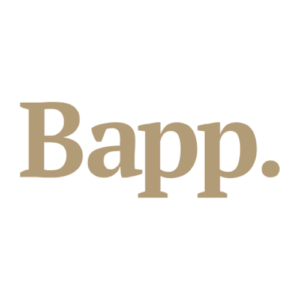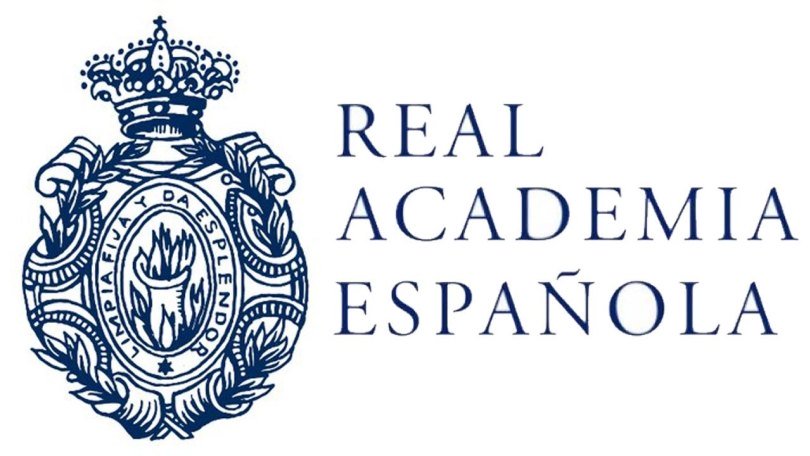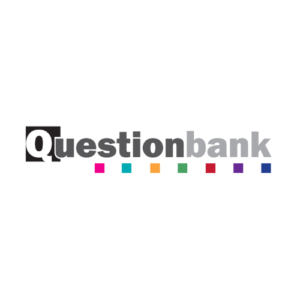Library and Resources
Welcome to a new and exciting academic session at the library! It is an honour to be part of your children’s learning process this year.
We work with a digital Library Management system called Follettdestiny.com. This is your gateway to books, websites and other resources in the school. This system allows students, staff and parents to view our school library catalogue online and students are encouraged to use this to help with research, to write reviews about books they have read, and search for new books that they may like to read.
The catalogue, now searchable online, includes upwards of 14,547 titles, with 32,298 copies of books and audio-visual resources, as well as many thousands of approved websites. You can access the system Online Public Access Catalogue (OPAC) clicking the button below.
Having the library accessible in this way, and having parents engaged with reading, will help to support our commitment in improving our students’ literacy standards. The school is strongly committed to promoting reading for pleasure.
Have fun using the new interface and be sure you familiarise yourself with all the new features.





















The Library of Real Academia Española (RAE) safeguards the books that have supported the institution in its work for three centuries. We open the doors to this historical legacy through our Digital Library.
Collections
- El Libro Total: An open-access library containing over 45,000 titles encompassing literature, images, and music from Greek and Latin classics, Latin American and European literature, 19th-century literature, poetry, and children’s literature. Some of them are available in audio editions that can be listened to simultaneously.
- OAPEN – Publishing in European Networks: An open-access library containing full-text academic books in various fields of knowledge such as humanities, social sciences, economics, finance, business and management, arts, literature, among others.
- Consorcio de Bibliotecas Universitarias del Ecuador: Through this repository, research papers conducted at various Ecuadorian academic institutions are stored, offering approximately 60,000 open-access full-text records of undergraduate theses, essays, and course materials made available to the public by different Ecuadorian universities.
- Red de Repositorios Latinoamericanos: It provides simultaneous access to 65 institutional repositories in Latin America, with initial access to over 158,000 academic documents developed by faculty and researchers from various affiliated institutions.
- Red Federada de Repositorios de Acceso Abierto a la Ciencia – La Referencia: It enables the visibility of the scientific output from higher education and research institutions in Latin America, promotes open and free access to full-text content, with a particular emphasis on publicly funded research outcomes.
- Red Mexicana de Repositorios Institucionales: It is a federated network of open-access repositories, currently comprising 98 repositories from 67 Mexican institutions, totaling 483,603 documents, including articles, undergraduate theses, master’s theses, and doctoral theses (as of October 18, 2017).
- Repositorio Institucional Secretaría de Educación: Here, you can find approximately 4,000 publications produced by the District Education Secretariat, available for open access and ready to download. Additionally, you can perform specialized searches by author, keyword, or publication date in the various collections.
- Repositorio Institucional Universidad de Antioquia: To provide a set of services to its university community to collect, manage, disseminate, and preserve its academic, scientific, cultural, and heritage production generated by authors affiliated with the University of Antioquia. It enables the University to give its creations greater visibility while increasing the usage and impact of the authors and the University itself. Additionally, it ensures long-term access and preservation of its academic and scientific production.
- Repositorio Nacional de Costa Rica: It is an open-access tool driven by the National Council of Rectors (CONARE), which allows online access to national academic and scientific production for the scientific and technological development of the country. It includes 44,044 documents, including master’s theses, undergraduate theses, reports, and articles.
- Sistema Nacional de Repositorios Digitales Argentinos – SNRD: It promotes open access and the exchange of scientific and technological production generated in the country. In addition, affiliated institutions can request funding to create/strengthen their digital repositories and for human resource development.
1. Portal educativo: Guía infantil.com
Resources for children (View full catalog):
- Colombia Aprende: offers a range of digital educational content in all areas of knowledge, allowing the educational community to complement their training and learning processes.
- Pipo Club: This website contains games for students aged 0 to 12, covering subjects such as Mathematics, Geography, Music, and English. The games help develop skills such as reading comprehension, hand-eye coordination, and spatial vision.
- Kahoot!: A platform that allows the creation of visually stunning question and answer games, with numerous quizzes already created by the community. It offers the possibility of customization or creating your own quizzes. Kahoot! is specially designed for education and is powerful enough to engage students in learning.
- Quizizz: Another alternative to Kahoot! well-designed and developed to offer content in various subjects. It allows the creation of question and answer competitions to engage students in learning. It also offers the option to assess them easily by collecting response data.
- Code.org: This platform presents small challenges that players must solve using programming blocks, opening up endless possibilities through an unlimited editor. It offers tutorials adapted to various age groups and numerous resources for teachers wishing to use the platform in their classes.
- Minecraft EDU: In recent months, Microsoft, the current owner of Minecraft, has been making efforts to transform the game into an educational tool. Minecraft EDU, a version specially designed for classrooms worldwide, aims to make learning enjoyable through the extensive materials and resources available.
- Verso App: A comprehensive learning platform designed to ‘hook’ students into learning through technology. The app organizes and coordinates lessons and knowledge in each subject, with various activities to promote teaching.
- Cerebriti: Both teachers and students can create their own educational games in less than two minutes through this collaborative platform. It does not require programming knowledge; users can share their games with the educational community for free. An advanced educational version is available for institutions, providing teachers with personal keys for a private space offering personalized attention.
- Cristic: Cristina Carbonell is the author of this website, where she has compiled more than 500 free educational games organized by grade levels (from kindergarten to 6th grade) and subjects (English, Social Studies, Science, Art, Spanish language, etc.). The site also has a section for teachers with numerous resources and information on courses such as MOOCs or TED talks.
- Educanave: It compiles materials and digital games for Early Childhood, Primary, and Secondary Education. It presents these materials as islands, with each theme representing a different point in the archipelago: game beach, knowledge beach, English beach, arts beach, geometry turtle, nature turtle, etc. Other content provided includes video libraries, stories, and songs.
- Bosque de Fantasías: Covers various didactic content for working on subjects in Primary Education. It includes language and literature games focusing on improving spelling, vocabulary, and grammar; math games; social studies and natural sciences games, as well as other materials such as educational sheets, educational blog, and sections on jokes.
- Cokitos: A website categorized by educational levels and ages: students aged 3 to 12, secondary school students, and adults. It offers numerous options for students to work on subjects such as Physics through games based on force, speed, and other scientific magnitudes. It also provides materials to review other disciplines such as the human body, letters, numbers, and content in English.
- Eduteka: An educational portal from a Latin American foundation, Gabriel Piedrahita, located in Colombia, offering numerous resources and documents on the use of ICT in education. It contains a lot of theoretical and conceptual documentation on the innovative use of ICT in education.
- Exam Tim: Online application for creating concept maps and tests to check knowledge. It can be used on any electronic device, computer, or tablet. Concept maps, also known as mind maps, allow the use of shapes and colors, as well as images that can be included. Creations can be modified and edited as many times as necessary, and they can be shared for others to access the information posted.
- Second Life: Education has also embraced virtual environments. Second Life is a virtual world where avatars with human-like appearances bring players to life in the virtual world.
- Experimento: An international educational program by Siemens Stiftung. It aims to teach, learn, and experience science and technology.
- Biblioteca Virtual Miguel de Cervantes: provides access to Spanish-language ebooks in the public domain, allowing unrestricted reuse. Documents cover areas such as literature, language, history, and children’s and youth literature.
- Quira Medios: A website designed as a space for the dissemination and communication of cultural, academic, and research projects on artistic, anthropological, sociological, historical, economic, community, and environmental topics. These projects are shared in audiovisual, photographic, and radio formats.
- Banco de la República: provides an opportunity to form reading communities with people of various ages, roles, and visual impairment. Whenever we read about a topic, in a literary work, a text, or another format, questions, thoughts, and new curiosities arise.
- Diásporas: The Book Events are a project of the City Hall of Medellín, responding to the Citizen Plan for Reading, Writing, and Orality. Hand in hand with the Public Library System of the city, they encourage reading, promote art and culture, and create spaces for meeting and coexistence around the book.
- Revista Maneko: Bimonthly magazine specializing in anime, manga, and video games. Available since the year 2009.
- Meetup: is a platform to find and build local communities. People use Meetup to meet new people, learn things, find support, step out of their comfort zones, and pursue their passions together.
- 400 elefantes: Cultural and literary magazine. It contains contemporary literature in the Spanish language with authors from different fields, including narrative, essays, interviews, samples of visual arts, film reviews, news, and other materials.
- La máquina del tiempo: Literary magazine that publishes materials in narrative, poetry, and essays, as well as in children’s literature. It also releases special issues dedicated to recognized writers and has a team dedicated to conducting both in-person and virtual workshops.
- Alfalibros: Literary magazine. Publishes texts in poetry, narrative, and other genres and has its own virtual bookstore to acquire books by Latin American authors. It also publishes complete books in digital format and has its own art gallery.
- Mandeb: Uruguayan literary magazine with free distribution. In its pages, you can read poems, short stories, comics, interviews, and other materials. Its purpose is to serve as a channel for the dissemination of new authors.
- Ciudad Seva: In 1995, the writer Luis López Nieves founded Ciudad Seva out of curiosity. A space to facilitate the dissemination and study of his literary work… and an innovative area to share with friends, colleagues, and students.
- Cervantes: It provides materials and services for Spanish teachers, students, translators, journalists, and other professionals working with the language, as well as for Hispanists worldwide, and for anyone interested in the Spanish language, its culture, and the status of Spanish on the web.
- Rincón castellano: It contains a chronology of Spanish literature: medieval, Renaissance, Baroque, Enlightenment, Romanticism, Realism, the generations of 1898 and 1927.
- Material de lectura: It is a portal managed by the Cultural Diffusion Center of UNAM. There, you can also find anthologies of stories by authors such as Hawthorne, Chekhov, Fuentes, Quiroga, Sábato, etc.
- Clasco: The CLACSO Digital Repository provides free and open access to the output of the 433 Member Centers of CLACSO in 26 countries in Latin America and the Caribbean.
- Cogprints: Archive of full-text documents, deposited by the authors themselves, in the fields of Psychology, Neurosciences, Linguistics, and related areas.
- Lanic: It provides an overview of the current economic situation in the Latin American and Caribbean region.
- Uts epress: Academic journals that cover topics of governance, management, international studies, history, law, cultural studies, communication, and social justice.
- Red: It contains environmental information, notes on economic development, and a description of products and services for the industrial sector.
- Revista Bio Ciencias: It is a regular scientific publication that shares information in the fields of biology and agriculture. The primary areas of focus for the journal encompass biological sciences, covering topics such as experimental biology and biomedicine, as well as environmental sciences, veterinary science, animal husbandry, along with aquaculture/fishing and agriculture.
- Virtual Pro: Digital repository of specialized information related to various themes in industrial processes: reports, guides, manuals, theses, articles, studies, videos, infographics, images, animations, among others. It covers topics such as agriculture, food industry, chemical industry, environment, management and administration, manufacturing and production, natural sciences, applied sciences, and interdisciplinary studies.
- Free Libros: Virtual library that provides information on books, theses, tutorial videos, journals, audiobooks, and specialized theses in the field of engineering and pure sciences.
- Cuadernos de investigación: Electronic publication that includes research findings, reviews of academic experiences, information about software in mathematical education, informative documents aimed at the training and education of mathematics students and teachers.
- Cartoteca digital: The Digital Map Library is the repository of digitized documents from Spain and around the world. You can find cartographic documents and photographs for consultation and high-resolution download.
- USGS: Servers for maps of intensities, magnitudes, epicenter locations, or other variables. Also, other servers and Geographic Information Systems (GIS) and Global Positioning Systems (GPS).




















